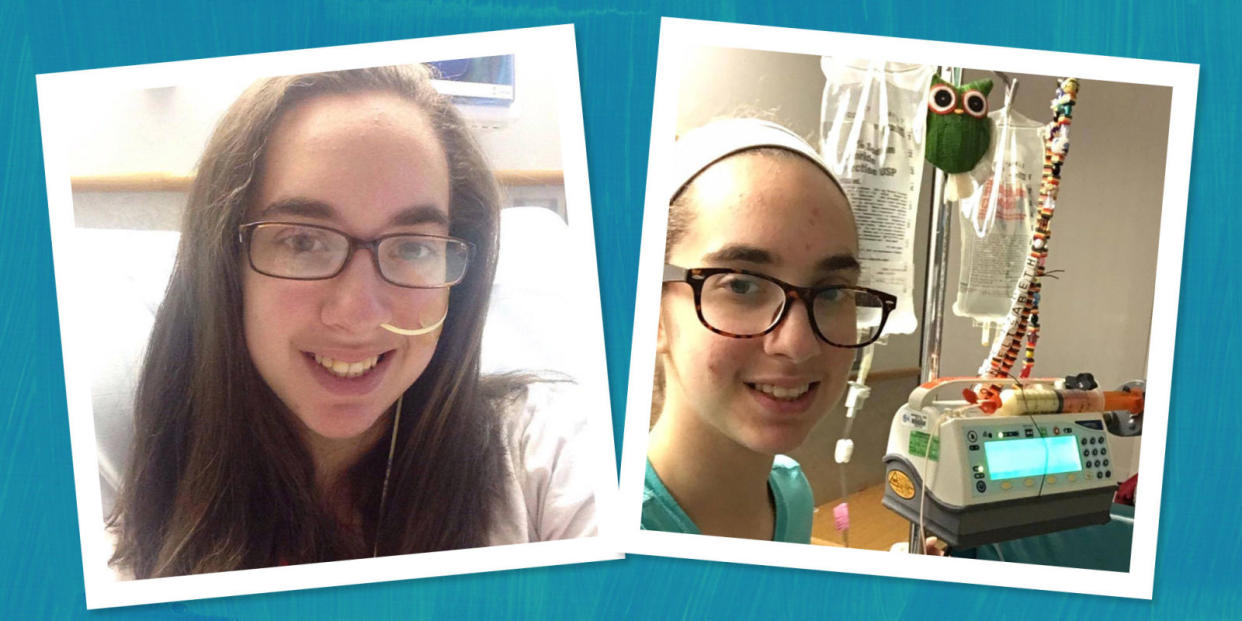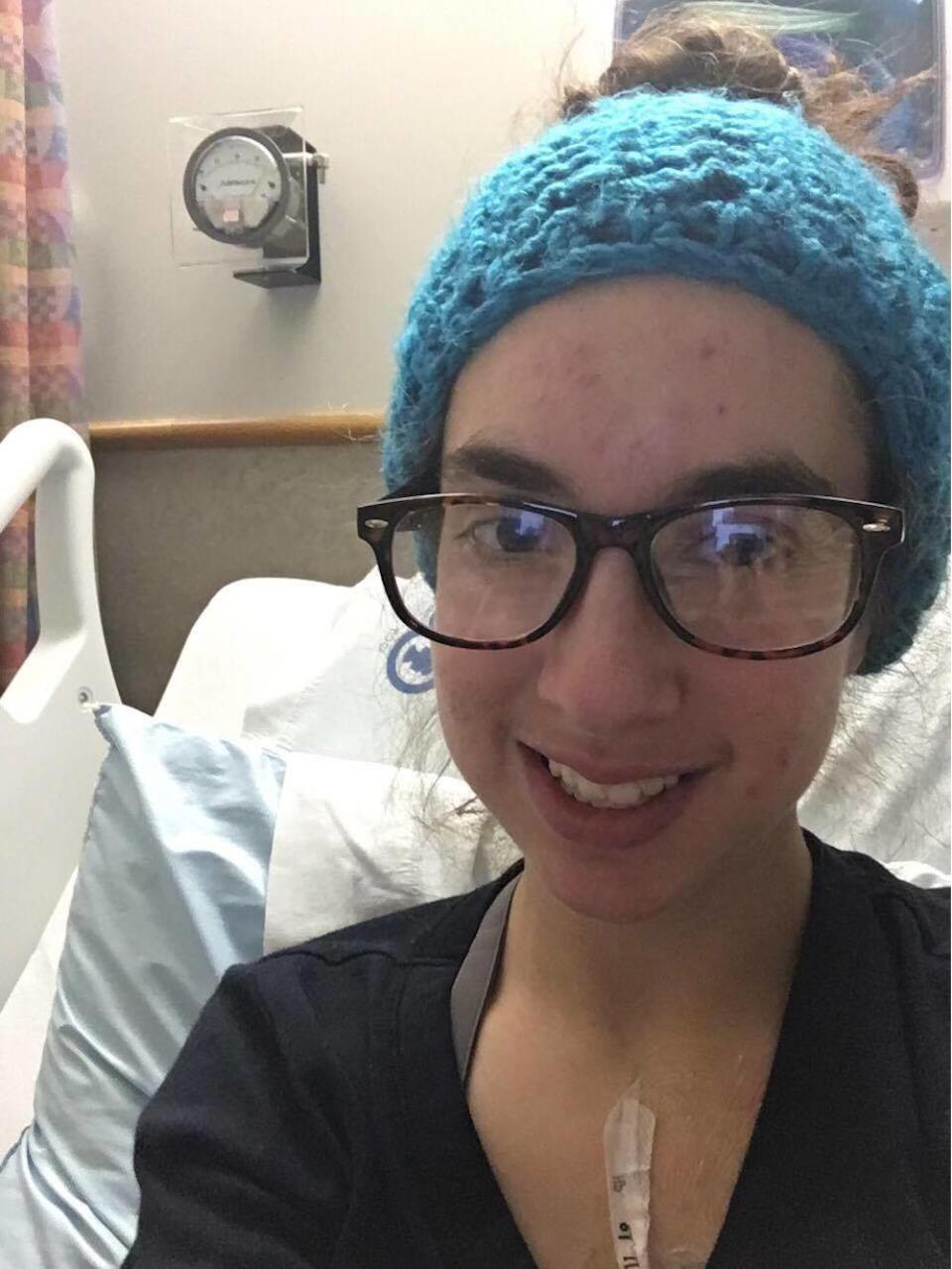If Obamacare Is Repealed, I Don't Know if I'll Live to See the Next President

In 2010, President Obama enacted the Affordable Care Act (nicknamed Obamacare) in an effort to help Americans afford health insurance. House Republican leaders are currently working on a health care bill to replace the ACA. The Congressional Budget Office, a nonpartisan federal agency, reported in January that if the ACA is repealed, 18 million people will lose or forfeit their health insurance in the first year. Joan Fanwick, a 21-year-old college student living with an autoimmune disorder called Sjogren's Syndrome (pronounced "SHOW-grins"), is among that group. Without health insurance, she faces costs upwards of $50,000 per year.
After nearly a decade of mysterious health scares, I was diagnosed with an autoimmune disorder called Sjogren's Syndrome last year, when I was a junior at Temple University. It's a chronic illness with no known cause or cure, and without close medical surveillance and care, it can lead to life-threatening complications (like the blood infections I frequently experience).
For me, having this disorder means waking up every morning and taking 10 different medications. It also means a nurse visiting my apartment every Saturday to insert a needle into the port in my chest, so I can give myself IV fluids throughout the week. Every other week, I get a delivery of IV supplies such as bags of saline and IV tubing. And once a month, I receive a giant shipment of feeding-tube nutrition, including four cases of formula.

My medical bills aren't cheap under Obamacare, but I can afford them.
I'm relatively lucky - I have health insurance. Even though kids can stay on their parents' insurance until age 26 thanks to Obamacare, I can't take advantage of that rule. My parents' plan only covers care in Connecticut, where they live, but I go to college in Pennsylvania. So on top of attending school, I hold down two part-time jobs, with a very modest income that qualifies me for government subsidies on a healthcare exchange program.
Without insurance, my medical expenses would cost me about $1,000 per week - more than $50,000 per year. And that doesn't even include hospitalizations. Last year, I spent six weeks in the hospital, which would've cost me tens of thousands of dollars if I hadn't been insured.
Before Obamacare, insurance companies had ways of making certain patients pay more. One way was to enact a lifetime cap - they'd cover your healthcare costs to a point, but once you hit your limit, you were maxed out forever. For people like me, who may need expensive medical care for their entire lives, lifetime coverage caps were terrifying.
Under Obamacare, insurance companies aren't allowed to cut you off when your costs climb. Right now, the most I personally have to pay out of pocket is $1,000 per year. That means I cover the first $1,000 of my medical bills, and after that, a federal subsidy covers the rest. I shudder when I imagine having to come up with all the money for my doctors and meds on my own. January's not even over yet, and I've already paid $259.
The Affordable Care Act also makes it illegal for insurance companies to charge more for people with ongoing health conditions. And unlike in the old days, insurers aren't allowed to deny those patients coverage, either. For people like me, Obamacare means we can find insurance and pay the same premium as anyone else.

If Obamacare is repealed, I'll lose my insurance immediately.
Without Obamacare - and without an affordable solution to take its place - I will be among the 18 million Americans losing my health insurance. The possibility is all too real, especially since lawmakers who oppose the Affordable Care Act have yet to put forth a new proposal.
Even if I were able to afford some kind of basic insurance on my own - and get approved with my pre-existing condition - who knows what the plan might actually cover? I can't survive on physicals and flu shots alone.
The consequences ultimately would be life-threatening.
So at first, a repeal would simply bankrupt me; literally all my money would be funneled into my care. When that ran out, I'd immediately lose my medications, nurse's visits, IV, feeding tube and emergency hospitalizations - and my immune system could attack me and kill me.
If I lose my health insurance, I don't know if I can survive four years waiting around for a new president to take office. Unlike the Republicans in the House and Senate, I don't have the privilege of time.
Joan Fanwick is a senior at Temple University in Pennsylvania.
Hannah Orenstein is the assistant features editor at Seventeen.com. Follow her on Twitter and Instagram.
You Might Also Like

